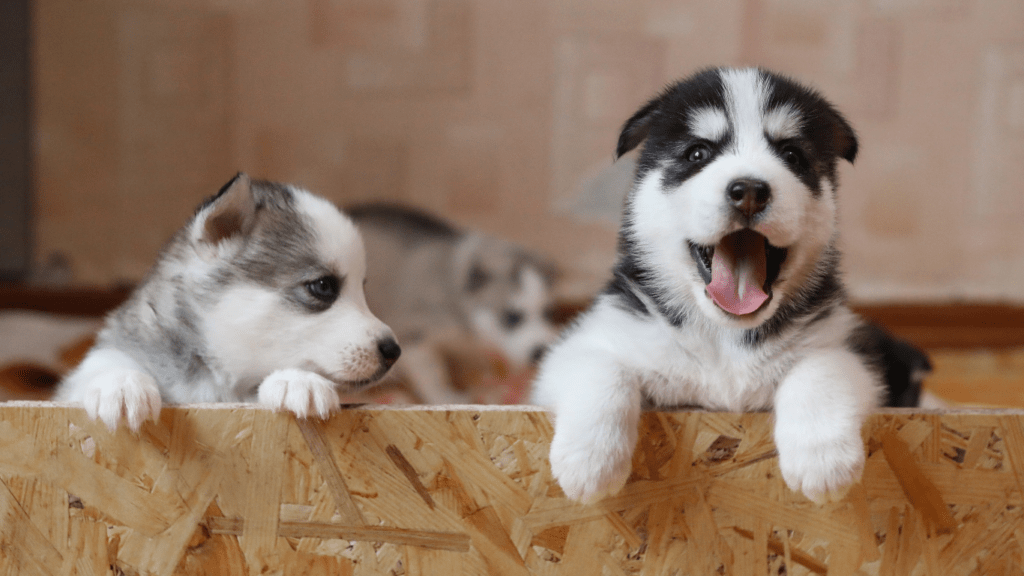Understanding Modern Puppy Training
Modern puppy training techniques focus on positive reinforcement, socialization, and mental stimulation to ensure a well-adjusted, obedient pup. These methods improve the training experience and promote a healthy relationship between owner and puppy.
Positive Reinforcement
Positive reinforcement involves rewarding desired behaviors to encourage their repetition. This can include treats, praise, or toys. For instance, when a puppy sits on command, offering a small treat reinforces that action. Research by the American Veterinary Society of Animal Behavior (AVSAB) shows that positive reinforcement results in faster learning and stronger bonds.
Socialization
Socialization exposes puppies to various people, environments, and other animals during their critical development stages. This helps them become more adaptable and less fearful as adults. According to the American Kennel Club (AKC), puppies should meet at least 10 different people per week during the first three months. Properly socialized puppies are less likely to develop behavioral issues and are more confident.
Mental Stimulation
Mental stimulation keeps puppies engaged and prevents boredom, which can lead to misbehavior. Activities like puzzle toys, training games, and new experiences challenge a puppy’s mind and promote cognitive development. A study from the Journal of Veterinary Behavior suggests that mentally stimulated puppies are less likely to engage in destructive behaviors.
Consistency
Consistency ensures that puppies understand expectations and commands. Using the same commands and rewards helps avoid confusion. If you use “sit” one day and “down” the next for the same action, the puppy may not learn effectively. The Society for the Prevention of Cruelty to Animals (SPCA) emphasizes the importance of consistency in reinforcing behaviors.
Patience and Persistence
Patience and persistence play essential roles in modern puppy training. Puppies learn at different paces, so persistent, patient training is necessary. Avoid punishment, as it can lead to fear and aggression.
By employing these modern training techniques, achieving a well-behaved and happy puppy is both effective and enjoyable.
Expert Tips for Successful Training
Experts stress the importance of establishing a strong training foundation for puppies. Here are key insights and advanced techniques to ensure a well-rounded training experience.
Building a Strong Foundation
Begin with basic commands and routines. Consistency helps puppies understand expectations. Use short sessions, around 5-10 minutes, to keep your puppy engaged. Repetition solidifies learning. Experts recommend starting with easy commands like “sit,” “stay,” and “come.”
Positive Reinforcement Techniques
Reward desirable behaviors immediately. Use treats, praise, or toys for reinforcement. This approach creates positive associations with commands. For example, if the puppy sits, immediately reward them. To enhance effectiveness, offer high-value treats during training.
Incorporating Advanced Commands
Once basic commands are mastered, introduce advanced ones like “heel” and “place.” Professionals suggest breaking down complex actions into smaller steps. For instance, teach “heel” by rewarding the puppy for walking beside you for short distances, gradually increasing the distance.
Tools and Resources for Effective Training

Training puppies successfully requires the right tools and resources to implement modern techniques effectively.
Essential Training Equipment
- Using the right equipment makes a significant difference in puppy training.
- High-quality leashes and collars provide control and safety during outdoor training.
- Adjustable harnesses to avoid putting strain on a puppy’s neck.
- Clickers facilitate positive reinforcement by marking desired behaviors immediately.
- Long training lines offer the flexibility needed for practicing recall commands from various distances.
- Treat pouches keep rewards handy and reinforce positive behaviors promptly.
- Interactive toys, like puzzle feeders, stimulate mental engagement.
Recommended Apps and Online Courses
Leverage technology for more effective puppy training. Apps like “Puppr” provide step-by-step guides for basic and advanced commands. Dedicated platforms like “Doggone Good!” offer custom training plans tailored to your puppy’s needs. Online courses from reputable trainers, such as those on “Udemy” and “Coursera”, provide flexibility to learn and apply techniques at your own pace. Expert-led webinars and live sessions provide opportunities for real-time feedback and expert interaction. These resources ensure continuous learning and skill improvement.
Common Challenges and Solutions
Training puppies can present several common challenges, but these can be addressed with the right techniques.
Addressing Behavioral Issues
Behavioral issues like:
- barking
- chewing
- digging
can be common in puppies. Positive reinforcement helps correct these behaviors. For instance, offering a chew toy can redirect unwanted chewing. Ignoring barking and rewarding quiet behavior can reduce excessive barking. Consistency in responses ensures puppies understand which behaviors are acceptable. If a behavior persists, consulting a professional trainer or veterinarian might be necessary for deeper issues.
Enhancing Socialization Skills
Proper socialization is crucial for puppies to interact well with other dogs and humans. Experts advise exposing puppies to different environments, sounds, and people to build confidence. Puppy socialization classes provide a controlled environment to practice these skills. Arrange playdates or visits to dog parks for practical experience. It’s essential to monitor their interactions and intervene gently if they display fear or aggression. Early and consistent socialization leads to well-adjusted adult dogs.
Case Studies: Success Stories
Experts have shared numerous success stories showcasing the effectiveness of new training techniques for puppies. These case studies highlight the transformations achieved and the valuable lessons learned.
Real-Life Transformations
Through consistent application of positive reinforcement and innovative training tools, many puppies have shown remarkable behavioral improvements. For example, one expert trained a high-energy Jack Russell Terrier who initially struggled with excessive barking and jumping. By using interactive toys and controlled socialization, the trainer managed to reduce these behaviors significantly within two months.
Another notable transformation involved a nervous Rescue Beagle with severe anxiety issues. The expert utilized gradual exposure to various environments and short, repetitive training sessions focusing on basic commands. After three months, the Beagle became more confident and less reactive to external stimuli.
Lessons Learned
From these success stories, several key lessons emerge. Consistency stands out as a crucial factor in effective puppy training. Trainers found that maintaining a regular schedule for training sessions led to better results. Positive reinforcement, including treats and vocal praise, proved to be more effective than punitive measures.
Additionally, the importance of socialization can’t be overstated. Puppies exposed to different environments and controlled interactions adapted better to new situations. Experts noted that gradual exposure mitigates fear and anxiety in later stages of development. Lastly, using appropriate training tools like leashes and interactive toys aids in managing and channeling a puppy’s energy constructively.



 Lead Pet Behavior Specialist
Brian Camacho is an expert in pet behavior and training at Pet Paw Shack. With a deep understanding of animal psychology, he specializes in helping pets and their owners build strong, healthy relationships through positive reinforcement techniques. Brian’s innovative approach to training focuses on making behavior modification a fun and rewarding experience for both pets and their families.
Lead Pet Behavior Specialist
Brian Camacho is an expert in pet behavior and training at Pet Paw Shack. With a deep understanding of animal psychology, he specializes in helping pets and their owners build strong, healthy relationships through positive reinforcement techniques. Brian’s innovative approach to training focuses on making behavior modification a fun and rewarding experience for both pets and their families.
